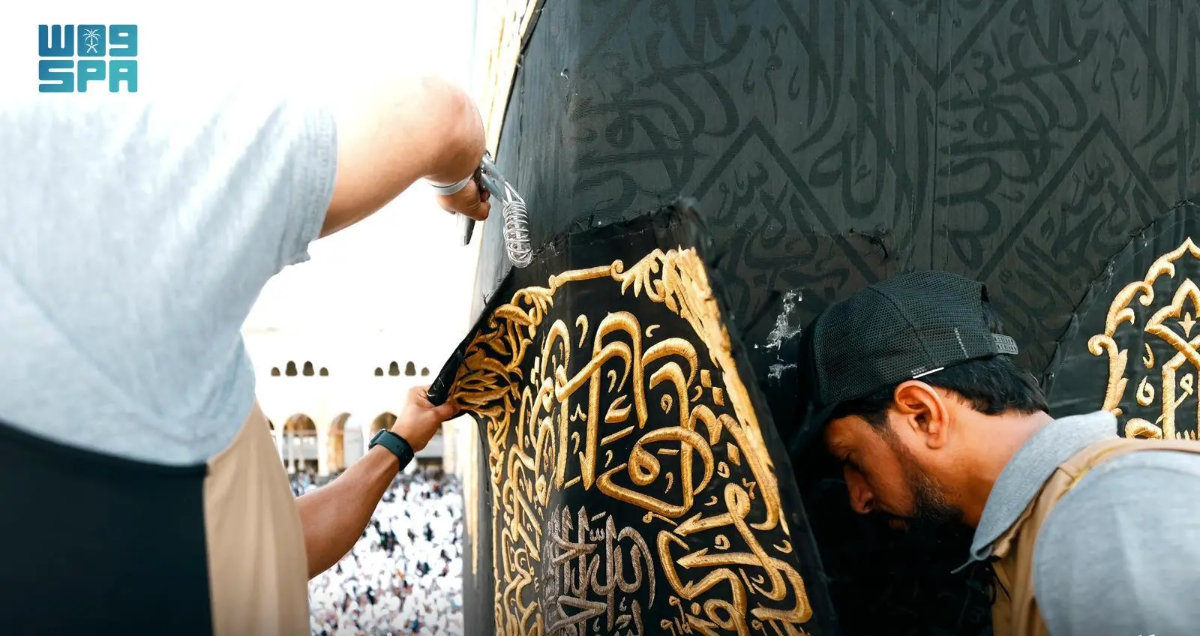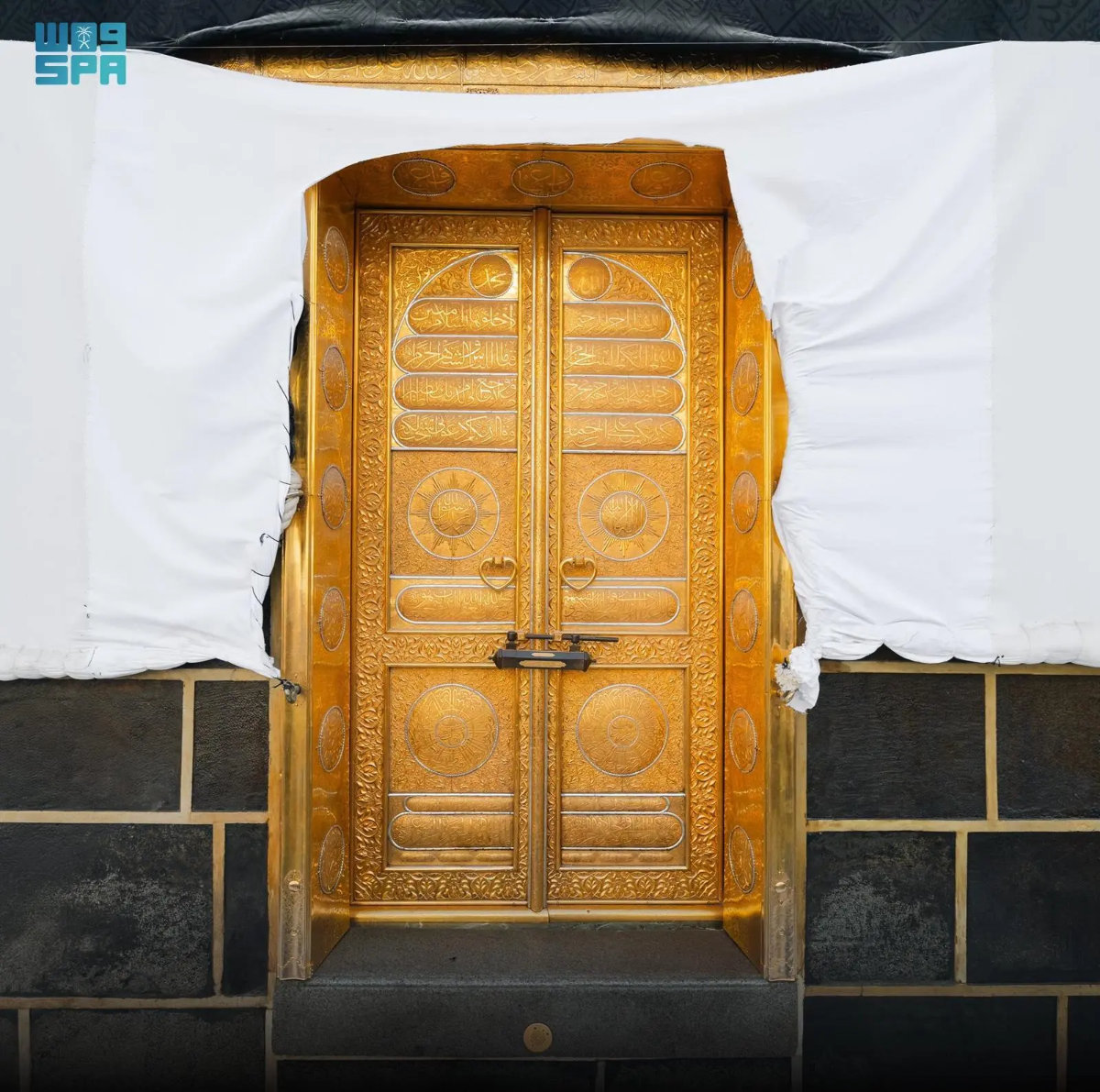MAKKAH: Saudi women participated in the kiswa changing ceremony at the Kaaba in Makkah for the first time, Sunday as part of the team organized by the General Presidency for the Affairs of the Grand Mosque and the Prophet's Mosque.
Installation of the elaborately designed black cloth cover was completed by a team from the King Abdulaziz Complex for the Kiswa of the Kaaba, composed of 159 skilled workers which included women for the first time.
لأول مرة .. مشاركة منسوبات الهيئة العامة للعناية بشؤون المسجد الحرام والمسجد النبوي في مراسم تغيير #كسوة_الكعبة_المشرفة. pic.twitter.com/M5pO3f82RP
— الهيئة العامة للعناية بشؤون الحرمين (@AlharamainSA) July 7, 2024
As described by the Saudi Press Agency, the specialist team first removed the gold-embroidered pieces of the Kaaba’s old kiswa while the new one was being brought to the Grand Mosque from the complex.
The Kiswa contains 53 gold-embroidered pieces consisting of 16 for the belt area, seven for under the belt, four corner pieces, 17 lanterns, five pieces for the door curtain, one piece for Al-Rukn Al-Yamani, and two pieces for the Black Stone outline, along with the gutter.

The installation of a new Kiswa is a complicated process that takes up to 200 skilled technicians and craftsmen to complete in a few hours. (SPA)
The complex’s operational staff includes 159 skilled craftsmen who work to produce 56 gold-embroidered pieces for the kiswa. Work is done by hand and takes between 60 and 120 days to complete one gold-embroidered piece.
A total of 120 kilograms of gold, 100 kilograms of silver and 1,000 kilograms of silk are used in the production of the kiswa. As one piece, the kiswa weighs 1,350 kilograms and measures 14 meters in height, and consists of four separate sides and a door curtain, according to the complex in charge of kiswa production.
The covering is adorned from the outside with inscriptions woven with black threads.
To install the kiswa, the four sides have to be lifted separately to the top of the Kaaba to allow for the process to be completed. “After all the sides are fixed, the corners are sewed from the top of the covering to the bottom. After that is done, the curtain is placed, which requires time and skill in putting it up. An opening is made in the black fabric that is the size of the curtain, which is approximately 3.33 meters wide until the end of the covering and 6.35 meters long. Then, three openings are made in the black fabric to fix the curtain from under the fabric. Finally, the edges are fixed by sewing them into the black fabric on the covering,” SPA explained.
On May 22, about three weeks before the Hajj pilgrimage, the lower part of the kiswa was raised. The procedure is repeated every year to protect the kiswa from getting soiled and damaged as pilgrims circumambulate the Kaaba.

The installation of a new Kiswa is a complicated process that takes up to 200 skilled technicians and craftsmen to complete in a few hours. (SPA)
Previously the kiswa was replaced during the Hajj season, specifically on the morning of Dhul Hijjah 9 after the pilgrims go to Mount Arafat, in preparation for receiving worshippers the next morning, which coincides with Eid Al-Adha.
Last year, Saudi Arabia’s General Presidency for the Two Holy Mosques announced the change in tradition so that the annual event would be held on the eve of Muharram 1, the first day in the Hijri calendar.
Sheikh Abdulrahman Al-Sudais, president of religious affairs for the Two Holy Mosques, said the change was made based on a royal decision.
فيديو| قصة مراسم تغيير #كسوة_الكعبة_المشرفة لعام 1446هـ من البداية وحتى النهاية.
Video| The Story of the Occasion of the Changing of the Kiswah of the Ka'bah in the year 1446H from the beginning until the end. pic.twitter.com/BuEU3ijvLS
— الهيئة العامة للعناية بشؤون الحرمين (@AlharamainSA) July 7, 2024
































